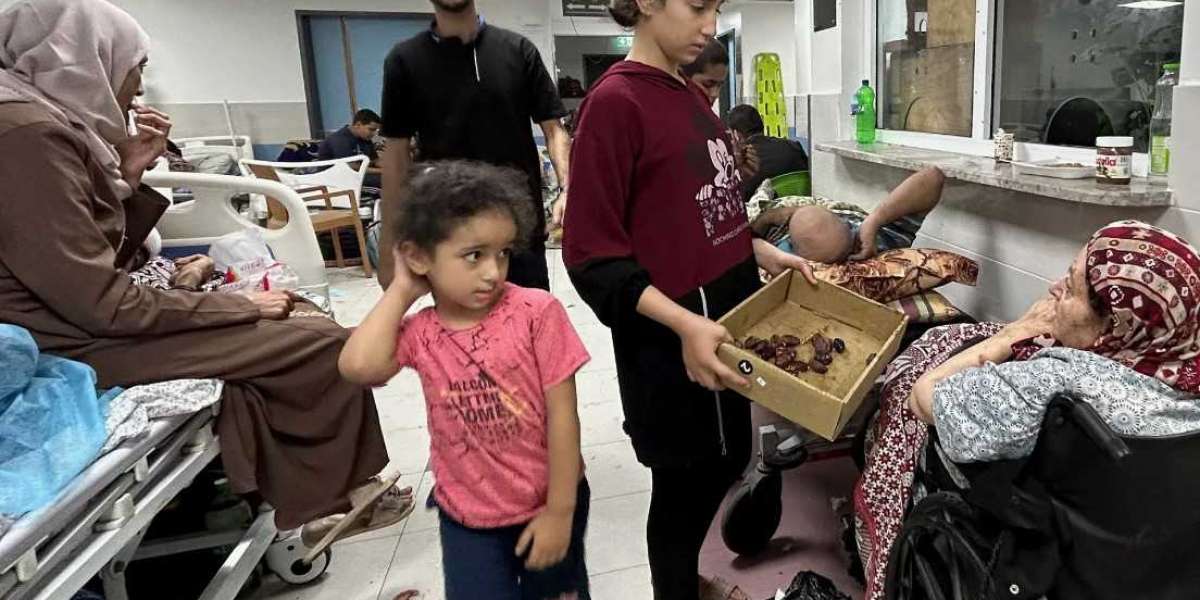Gaza’s healthcare system has been grappling with significant challenges for decades. However, the situation has only worsened due to continuous conflict, political instability, and economic sanctions. Gaza’s hospitals are in dire need of critical medical aid, as they struggle to provide essential healthcare services to millions of people. In this article, we will explore how you can help provide much-needed medical support to these hospitals and make a real difference in the lives of those suffering.
Understanding the Healthcare Crisis in Gaza
The healthcare crisis in Gaza is rooted in years of conflict, blockades, and restrictions. Gaza’s healthcare infrastructure is fragile and unable to meet the needs of the population, especially during emergencies or violent escalations. With limited resources and access to international aid, hospitals in Gaza are unable to provide the comprehensive care required by their patients.
The constant state of emergency caused by bombings and military operations has left Gaza’s medical facilities vulnerable and overburdened. The lack of modern medical equipment, frequent power shortages, and the destruction of health centers exacerbate the crisis.
Why Gaza’s Hospitals Need Critical Support
Shortage of Medical Supplies
One of the biggest challenges Gaza’s hospitals face is the shortage of basic medical supplies. Items such as surgical tools, bandages, painkillers, antibiotics, and life-saving equipment are in short supply. Without these essentials, hospitals cannot perform even the simplest of medical procedures, putting lives at risk.
Overcrowded and Underfunded Hospitals
Gaza’s hospitals are overcrowded and severely underfunded. Due to the limited number of medical facilities, patients often face long waiting times and insufficient care. The lack of financial support from the international community means that hospitals are often operating without the necessary staff, medical tools, and medications.
Lack of Medical Personnel
In addition to material shortages, Gaza’s hospitals are also understaffed. Many healthcare workers have left the region due to security concerns, leaving hospitals without enough doctors, nurses, and specialists to cater to the population’s needs.
Impact of War and Blockades on Medical Services
Restricted Access to Essential Supplies
The blockade imposed on Gaza limits the entry of essential goods, including medical supplies. This makes it incredibly difficult for hospitals to maintain a steady flow of necessary medications, surgical tools, and other critical resources needed for day-to-day operations.
Damaged Healthcare Facilities
Many healthcare facilities in Gaza have been damaged or destroyed due to ongoing conflict. Hospitals, clinics, and medical centers have been targeted, leaving the remaining operational centers overstretched and struggling to meet the demand.
Difficulty in Transporting Patients
Ambulances and medical personnel often find it difficult to transport patients, especially those needing urgent care, because of restricted movement within Gaza. Roadblocks, military operations, and infrastructure damage can delay life-saving treatments for critically ill or injured individuals.
How You Can Contribute to Medical Aid in Gaza
Donations for Medical Supplies
One of the most effective ways you can help is by donating money that can be used to purchase medical supplies for Gaza’s hospitals. Partnering with reliable organizations ensures that your contribution reaches those in need. Some of the most requested medical supplies include bandages, surgical tools, medicine, and equipment like ventilators.
Financial Contributions
Even small financial contributions can have a huge impact in Gaza, where every dollar counts. Your donations can help pay for essential medicines, medical staff salaries, and the reconstruction of damaged facilities. There are several trusted platforms and humanitarian organizations dedicated to providing aid to Gaza, ensuring your funds are used effectively.
Volunteer Opportunities
If you have the means, consider volunteering your time to support Gaza’s healthcare system. Medical professionals, such as doctors and nurses, are always in high demand. However, even non-medical professionals can provide remote support through administrative work, fundraising, and advocacy efforts.
The Role of International Aid Organizations
International aid organizations play a crucial role in ensuring Gaza’s hospitals receive the support they need. These organizations have the infrastructure to deliver medical supplies, provide medical personnel, and fund the rebuilding of healthcare facilities. Supporting organizations such as the International Red Cross, Doctors Without Borders, and UNRWA ensures that aid is delivered effectively to Gaza’s healthcare sector.
Local Initiatives Supporting Gaza’s Healthcare
In addition to international organizations, there are local initiatives within Palestine that focus on supporting the healthcare system. These grassroots movements work on the ground to deliver aid, raise awareness, and provide medical care to those in need. Supporting these initiatives is another way to ensure aid reaches the people of Gaza.
Advocacy and Raising Awareness
Use of Social Media
Social media is a powerful tool that can help raise awareness about the situation in Gaza. By sharing stories, statistics, and information about the healthcare crisis, you can encourage others to get involved. Platforms like Twitter, Facebook, and Instagram allow you to amplify the message and create a ripple effect of support.
Engaging Political Leaders
One way to bring about long-term change is by engaging political leaders and policymakers. Writing letters, signing petitions, and encouraging governments to take action can lead to policy changes that improve access to medical aid for Gaza.
The Role of Governments in Providing Aid
Governments play an essential role in providing humanitarian assistance to Gaza. Many countries offer government-funded medical relief programs that contribute to supplying Gaza’s hospitals with necessary resources. Engaging with these efforts and urging more governments to increase their support can lead to better healthcare for Gaza.
Understanding Ethical and Legal Considerations in Aid
When providing aid, it's important to ensure that the assistance is delivered in an ethical manner. This means partnering with organizations that are transparent about where the aid is going and ensuring that it reaches the intended recipients without discrimination.
Long-term Solutions for Gaza’s Healthcare Crisis
While immediate aid is necessary, it is equally important to focus on long-term solutions that strengthen Gaza’s healthcare system. Encouraging international cooperation, rebuilding healthcare facilities, and training medical personnel are essential steps to ensure a more sustainable future for Gaza’s healthcare.
Conclusion
Gaza’s hospitals are in desperate need of critical medical aid. From financial contributions and donations to advocacy and volunteering, there are many ways you can help provide life-saving support to the people of Gaza. Now, more than ever, it is crucial to step up and help ensure that the residents of Gaza receive the medical care they deserve.
FAQs
- How can I ensure my donations reach Gaza’s hospitals?
Donate through reputable organizations like the Red Cross, Doctors Without Borders, or UNRWA, which have direct channels to Gaza. - What are the most critical medical needs in Gaza right now?
Some of the most critical needs include antibiotics, surgical supplies, ventilators, and basic medicines. - Can non-medical professionals volunteer to help Gaza?
Yes, even non-medical professionals can contribute through fundraising, administrative support, and advocacy efforts. - Are there any trusted organizations I can work with to provide aid?
Organizations like the International Red Cross, UNRWA, and Doctors Without Borders are reliable and trusted in their humanitarian efforts. - How can advocacy help in improving Gaza’s healthcare system?
Advocacy can influence policy changes, increase awareness, and secure more international aid for Gaza's hospitals.







